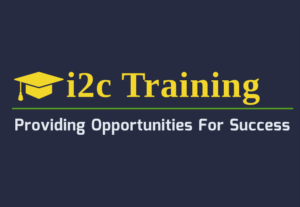More About Scrum
Scrum is a framework used in Agile project management that helps teams work together to develop and deliver high-quality software products. It is based on the principles of transparency, inspection, and adaptation, and it emphasizes collaboration, frequent delivery of working software, and continuous improvement.
In Scrum, a team works in short, time-boxed iterations called sprints, typically lasting two to four weeks. At the beginning of each sprint, the team meets to plan the work they will undertake and to define a sprint goal. During the sprint, the team meets daily in a brief stand-up meeting to review progress and identify any obstacles that need to be addressed.
At the end of the sprint, the team conducts a sprint review to demonstrate the work they completed and gather feedback from stakeholders. They also hold a sprint retrospective to reflect on what went well and what could be improved, and to make adjustments for the next sprint.

Scrum also involves three roles: the Product Owner, who defines and prioritizes the work to be done; the Scrum Master, who facilitates the Scrum process and ensures the team is adhering to its principles; and the Development Team, who works to deliver the product.
Overall, Scrum is a powerful framework that enables teams to work collaboratively, efficiently, and adaptively to deliver high-quality software products.
Scrum is a widely adopted framework for Agile project management, and as such, Scrum Masters are in demand in a variety of industries. Here are some examples of industries that employ Scrum Masters:
- Information Technology: The IT industry is one of the most common industries where Scrum Masters are employed. As software development and maintenance is one of the key functions of IT, it’s no surprise that the industry widely employs Scrum Masters.
- Financial Services: Banks, insurance companies, and other financial services organizations are increasingly adopting Agile practices to improve their business agility and responsiveness. This has created a demand for Scrum Masters who can help teams to become more efficient and effective.
- Healthcare: Many healthcare organizations have begun adopting Agile practices to improve the delivery of patient care, and Scrum Masters play a crucial role in facilitating this change.
- Education: Scrum is not only used in software development but also in education. Scrum can be used to organize project-based learning and promote collaboration among students.
- Marketing: Marketing departments are also increasingly adopting Agile practices to better respond to the rapidly changing marketing landscape, and Scrum Masters can help marketing teams work more effectively and efficiently.
Overall, any industry that is looking to improve collaboration, efficiency, and responsiveness can benefit from employing Scrum Masters. Scrum certifications can be useful for professionals who want to demonstrate their expertise in Scrum and Agile practices. Here are some of the most in-demand certifications in Scrum:
- Certified ScrumMaster (CSM): This is the most widely recognized Scrum certification and is offered by the Scrum Alliance. CSM certification demonstrates that the holder has a deep understanding of Scrum principles and practices, and can serve as an effective Scrum Master for a team.
- Professional Scrum Master (PSM): This certification is offered by Scrum.org and is an alternative to the CSM certification. PSM certification is based on a rigorous assessment process that evaluates the holder’s understanding of Scrum principles and practices, and their ability to apply them in real-world situations.
- Certified Scrum Product Owner (CSPO): This certification is also offered by the Scrum Alliance and demonstrates that the holder has a deep understanding of the product owner role in Scrum, and can effectively work with stakeholders to define and prioritize product backlogs.
- Professional Scrum Product Owner (PSPO): This certification, offered by Scrum.org, is similar to the CSPO certification and evaluates the holder’s ability to effectively fulfill the product owner role in Scrum.
- Agile Certified Practitioner (ACP): This is a certification offered by the Project Management Institute (PMI) and demonstrates that the holder has a broad understanding of Agile principles and practices, including Scrum.
Overall, while the CSM and PSM certifications are the most widely recognized in the Scrum community, the other certifications can also be useful for professionals seeking to demonstrate their expertise in specific areas of Scrum or Agile practices.
Explore our Scrum Courses here – Scrum Master Certified


Never miss our Information Technology articles on latest job trends and training offering posts again